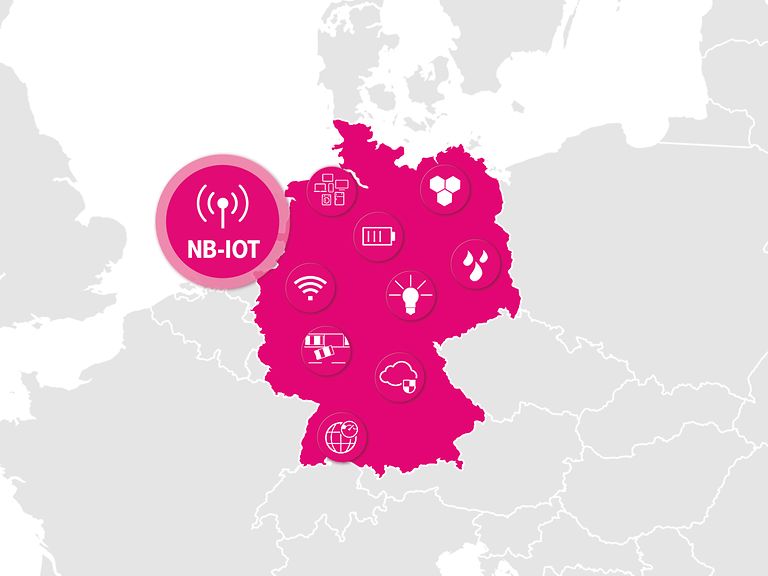Deutsche Telekom has launched its first two NB-IoT tariffs across Germany, alongside a smart parking solution in the city of Hamburg.
June 26, 2017

Deutsche Telekom has launched its first two NB-IoT tariffs across Germany, alongside a smart parking solution in the city of Hamburg.
The options will include a pilot plan in the first-instance, to allow customers to test out new ideas before fully committing. In a typically simplistic and efficient German manner, the first tier will be called NB-IoT Access, available from €199 and includes a 6-month activation of up to 25 SIM-cards with 500 KB per SIM pooled in Germany’s NB-IoT network.
The second package will be called NB-IoT Access & Cloud of Things. It will include everything mentioned above, as well as access to Deutsche Telekom’s Cloud of Things platform for device and data management, with prices starting at €299. And who said the Germans weren’t creative.
“Deutsche Telekom believes that NB-IoT is a radical Innovation in our market paving the road to digitization and our 5G services available from 2020,” said Hagen Rickmann, Head of Business Customer Segment at Telekom Deutschland.
“NB-IoT enables ambitious new business models, huge scale and a secure operating environment, which is exactly what our small and medium enterprise customers are looking for today as they increasingly move their business operations online.”
The second part of the announcement comes in the form of a smart parking proposition, which is available in Hamburg, and will be in Darmstadt, Duisburg, Dortmund, Merzig and Moers before too long. Using data from the sensors in the car parks, information from parking payment machines, pre-booking websites and other data sources across town, the system will be able to generate probability calculations as to whether a space will be available.
The launch in Germany follows on from the launch in the Netherlands, which the team claim is the first nationwide NB-IoT rollout. Work is already underway in other countries including Greece, Poland, Hungary, Austria, Slovakia and Croatia, while T-Mobile US is expected to deliver NB-IoT services in 2018.
The launch in the US might be an interesting affair, as it is set to continue its ‘weird cousin’ routine into the IoT world. While German stereotypes might be considered to be straight-laced, highly-logical and forensic, T-Mobile US CEO John Legere has done almost everything to ensure his brand steers clear of such perceptions.
“Like everything they do, the carriers over-complicate the Internet of Things, and that leads to more hassle and cost for customers,” said Doug Chartier, SVP at T-Mobile US, back in January. “The wireless industry needs simpler options for IoT to take off, and that’s exactly what we’re delivering.”
It’ll be a while before the services are launched in the same manner over the other side of the pond, but if the consumer marketing strategies are anything to go by, expect something a bit different.
About the Author(s)
You May Also Like








.png?width=300&auto=webp&quality=80&disable=upscale)


_1.jpg?width=300&auto=webp&quality=80&disable=upscale)


.png?width=800&auto=webp&quality=80&disable=upscale)